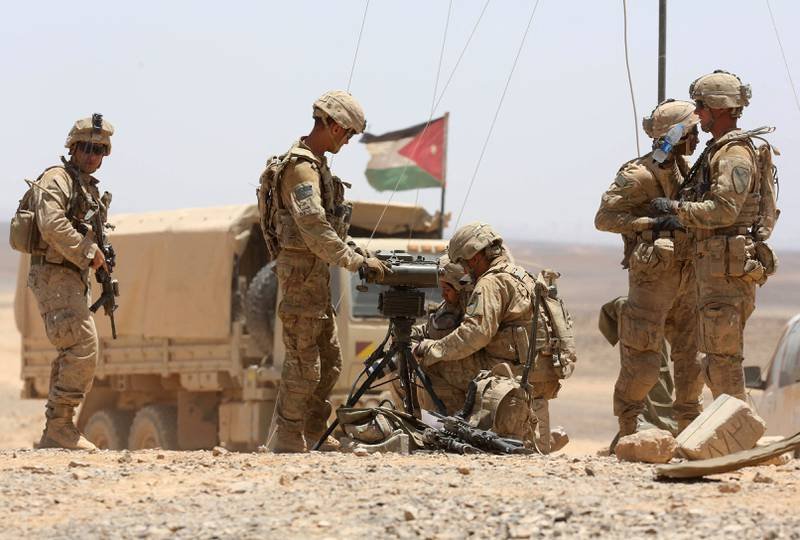Two attacks on vulnerable outpost in past six months were thwarted by air defences
Live updates: Follow the latest news on Israel-Gaza
The Pentagon is weighing up how best to respond to a Tehran-linked drone attack that killed three US troops at a small military base in Jordan as the risk of a broader clash with Iran grows by the hour.
Publicly, Iran and the US have declared their intention to avoid direct conflict, but the US President Joe Biden’s administration is under mounting pressure to increase attacks on Iranian-backed militias in Iraq and Syria, and some Republican hawks are even calling for direct strikes in Iran itself.
“We are not looking for a war with Iran … We will not seek to escalate,” said White House National Security Council spokesman John Kirby after Sunday’s Iran-backed attack on Tower 22, an isolated US outpost that hosts about 350 troops in the Iraq-Syria-Jordan border area.
“But we will absolutely do what is required to protect ourselves to continue that mission and to respond appropriately to these attacks.”
At least 34 US service members were injured, a US defence official told media, and the number was expected to rise further. Eight were medically evacuated for further evaluation and all of them are in a stable condition.
Many of those wounded were in their living quarters at the time of the explosion.
The tower was targeted twice previously but the attacks were thwarted by air-defence systems, the official added.
The Pentagon is investigating how the attack drone managed to evade defences. The Wall Street Journal reported there had been a mix up over the drone’s identity.
Tehran, through its UN mission, said it was not involved in the drone attack in north-eastern Jordan. An official statement said Iran had “nothing to do with it” but did not deny US accusations that militia allied with Tehran were behind it.
Qatari Prime Minister and Minister of Foreign Affairs Sheikh Mohammed bin Abdulrahman bin Jassim Al Thani condemned the attack and said it violated Jordanian sovereignty.
“An attack that happened in Jordan is infringing Jordan’s sovereignty, also undermining the force of the coalition against ISIS [and] is not something that can be accepted,” he said at an event in Washington.
Meanwhile, in London, Rishi Sunak called for calm.
“We are concerned and would urge Iran to continue to de-escalate tensions in the region,” the UK Prime Minister said.
The drone attack has intensified tensions linked to the war between Israel and Iran-backed militant group Hamas in Gaza.
Since October, the Pentagon has blamed Iran-backed militias for more than 150 attacks on US forces in Iraq and Syria. Further complicating the fraught picture, Tehran-supported Houthi rebels in Yemen have unleashed dozens of attacks on merchant and military vessels in the Red Sea.
A pro-Iranian source in Beirut said the Israeli killings of Iranian military officials in Syria over the past two months have been a factor behind the escalation and warned of further attacks against US. Another factor is Tehran’s desire to weaken Washington in negotiations with Baghdad over the withdrawal of US forces.
The source cited the “intensity” of Houthi missile attacks in the Red Sea and use of more advanced missiles by Hezbollah in an continuing border war of attrition with Israel as “good examples” of Iran’s intention to carefully widen the Gaza conflict.









 United Arab Emirates Dirham Exchange Rate
United Arab Emirates Dirham Exchange Rate